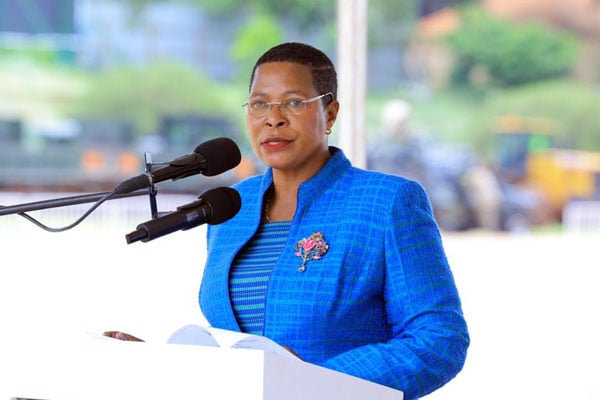Why the Ben Kiwanuka memorial made its mark
What you need to know:
- Mr Wambuzi in a lengthy recap of President Museveni’s dismissive stances towards the Judiciary just fell short of describing his behaviour as reckless. The old man was done, a standing ovation and reflection from the audience that they had just listened to one of Uganda’s most gallant sons.
On Friday, September 21, 2018, the Judiciary marked the 46th anniversary of the day of Ben Kiwanuka, former prime minister and Chief Justice, who was dragged from his chambers at the High Court never to be seen again. Kiwanuka age just 50, had double crossed Idi Amin by directing for the release of a British national in a habeas corpus application.
The day’s events comprised of a narrative of what drove Amin over a very short time to sour with Kiwanuka. In 1971, Amin had captured State power and promised to leave power in one year. He released 55 political prisoners mostly from the old political parties DP and UPC, whom Milton Obote had arrested after banning political parties in 1969.
Kiwanuka’s appointment in 1971 as Chief Justice came two years after president Obote appointed the first four Ugandans to the High Court. The surviving judge of the four, former Chief Justice Samuel Wilson Wako Wambuzi, who served a record three terms as Chief Justice, delivered the keynote address.
The choice of Mr Wambuzi, 87, the founding father of the Judiciary, was a master stroke by the current Chief Justice Bart Katureebe. Mr Wambuzi succeeded Kiwanuka as Chief Justice in very difficult circumstances and served until 1975. In 1979-1980, he served a second time and was hounded from office for ruling in Andrew Kayira & Paulo Ssemogerere v Attorney General Constitutional Case No. 1 of 1979 that the removal of President Yusuf Lule by the National Consultative Council a legislative organ set up by the Uganda National Liberation Front, was in violation of the 1967 Constitution in force at the time. It is not a minor fact that Mr Wambuzi as first parliamentary counsel, had been a key person in the drafting of the 1967 Constitution.
Worried of such an independent figure remaining in office, Paulo Muwanga the effective president of Uganda in the runup to the 1980 elections, simply got rid of him.
Most current Ugandans remember Mr Wambuzi’s third term of service 1986-2001 when he presided over the reassembling of the judicial branch, better terms for judicial officers and attempts to dilute the effect of years of inflation on the Judges’ retirement benefits. Mr Wambuzi stamped his authority on all the courts imposing discipline and getting rid of judicial officers who did not meet the grade.
The country came to see him in action first in 1998 when he led the Supreme Court (5-2) to dispose of the Tinyefuza decision, which initially seemed harsh or even draconian, but established a strong precedent of separation of powers. Starting off a long day of judgments, Mr Wambuzi noted that Tinyefuza had not even been tried, he had just been summoned to explain himself in accordance with the terms of his commission. Tinyefuza, a boisterous army general, had a long record of indiscipline and later in 2006, led an invasion on the High Court to prevent Kizza Besigye from being released.
In the referendum cases, Mr Wambuzi led an unanimous court to find government at fault for failing to comply with the provisions of the Constitution first in 1999 and then 2000. His successor as Chief Justice Benjamin Odoki led another unanimous court to establish the principles of interpretation of the Constitution and further strike down provisions of both the Movement Act and Political Parties Act.
As he cleared his voice, Mr Wambuzi rose to the rostrum and asked that he seat for delivery of his main remarks. The Chief after extolling the trauma of Kiwanuka’s departure stated the obvious - that his predecessor’s murder was a major State failure. No one had been arrested, charged or even questioned about Kiwanuka’s death. Mr Wambuzi in a lengthy recap of President Museveni’s dismissive stances towards the Judiciary just fell short of describing his behaviour as reckless. The old man was done, a standing ovation and reflection from the audience that they had just listened to one of Uganda’s most gallant sons.
Mr Ssemogerere is an attorney-at-Law and an advocate.




